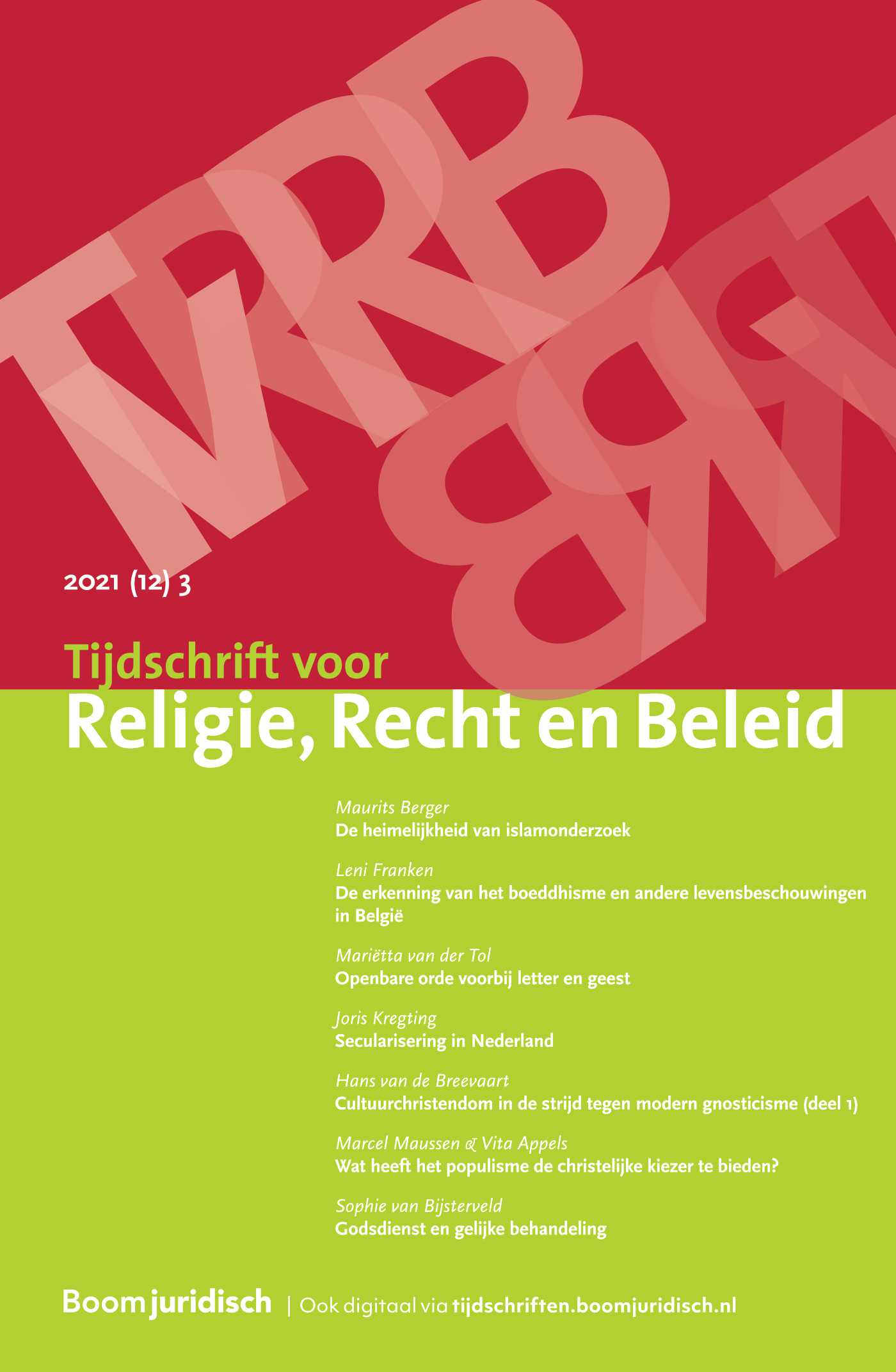|
Islamic schools are often criticized for indoctrinating children, which would violate the goals of education in a democratic society. This article explores whether, as a matter of principle, parents could legitimately choose to send their child to a school where he or she will be indoctrinated, for example because they believe that at a religious schools the opportunities for a child to be stigmatized are smaller. Besides, the article investigates whether it is plausible that children in Islamic school in the Netherlands are indeed being indoctrinated. |


Tijdschrift voor Religie, Recht en Beleid
Meer op het gebied van Algemeen
Over dit tijdschriftMeld u zich hier aan voor de attendering op dit tijdschrift zodat u direct een mail ontvangt als er een nieuw digitaal nummer is verschenen en u de artikelen online kunt lezen.
| Overwegende ... |
Yvonne Zonderop en de wetenschappelijke kakofonie van opvattingen |
| Auteurs | Mr. dr. Hans-Martien ten Napel |
| Auteursinformatie |
| Artikel |
|
| Trefwoorden | islamitische scholen, indoctrinatie, Onderwijsvrijheid |
| Auteurs | prof. dr. Michael S. Merry en dr. Marcel Maussen |
| SamenvattingAuteursinformatie |
| Artikel |
De katholieke sociale leer over de relatie gelovige/burger, samenleving en seculiere staat |
| Trefwoorden | kerk-staatverhoudingen, canoniek recht, katholieke sociale leer, Geschiedenis, Staatsleer; Rooms-Katholieke Kerk |
| Auteurs | Mr. dr. Maurice van Stiphout |
| SamenvattingAuteursinformatie |
|
In the 19th century in many Western states, the close relationship between Church and State came to an end and the Roman Catholic Church developed into a major and active player on social and educational level in society separate from the State. |
| Artikel |
|
| Trefwoorden | godsdienstvrijheid, EVRM, Islam, financiering geloofsgemeenschappen |
| Auteurs | Dr. Adriaan Overbeeke |
| SamenvattingAuteursinformatie |
|
According to the Coalition Agreement 2017-2021, the Dutch government intends to develop policy to prevent religious communities from receiving support from abroad if this support comes from so-called ‘unfree countries’. In the article, the author argues that restrictive measures in this area touch upon the collective freedom of religion, which is protected by the ECHR, measures that can only be justified under strict conditions in the light of religious freedom as guaranteed in article 9 ECHR. |
| Artikel |
De enige shariarechtbank in Europa |
| Trefwoorden | sharia in Europe, sharia courts in Greece |
| Auteurs | Prof. dr. mr. Maurits S. Berger |
| SamenvattingAuteursinformatie |
|
When we consider a ‘court’ a judicial institution recognized by the state that renders judgment based on law recognized by the state, then the only ‘sharia courts’ to be found in Europe are located in the eastern province of Greece. Their jurisdiction is limited to Islamic family law, but a recent case before the European Court of Human Rights has rekindled the discussion on the scope of this jurisdiction, and opened the discussion on the desirability of such courts in a European country. This article presents an analysis of this discussion, based on literature study and fieldwork in the region. |

